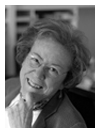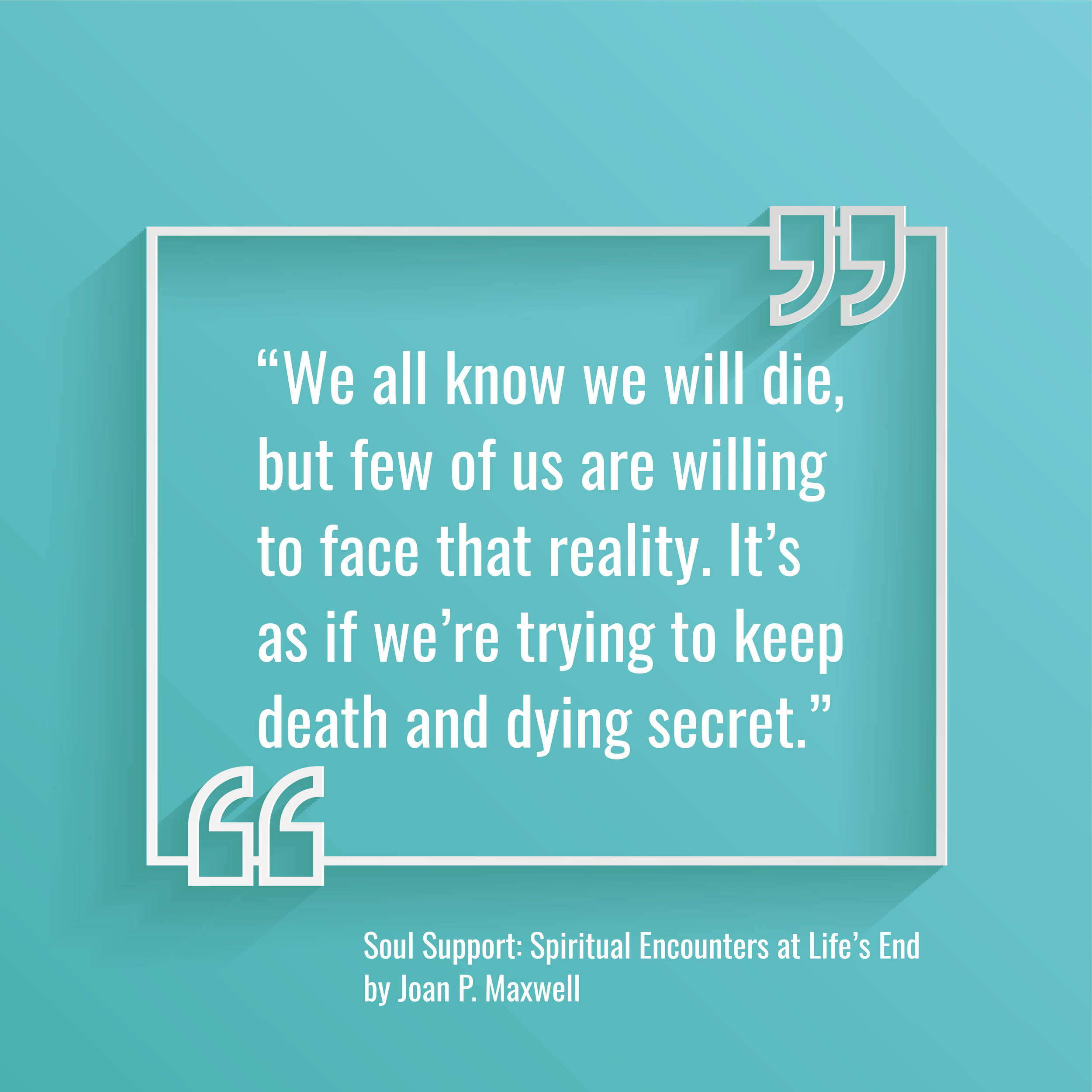We all know we will die, but few of us are willing to face that reality. It’s as if we’re trying to keep death and dying secret. Sometimes we have a story we need to tell about a dying, or a question we need to ask about aspects of the dying process, and we have nowhere to turn. I was 12 when I first learned about how many people fear death. Cheryl, a kid I’d just met at summer camp, whispered, “Do you know just about every kid here has a broken family?” “Yeah, I know,” I said. “My mom died when I was 3.” Cheryl’s face twisted. “Both my parents are alive,” she said as she backed away. She had questions, but she was afraid to ask. At that moment, I knew she was now scared of me, and we would never be friends. That happened again, many times.
Dying people are often hidden in hospitals and nursing homes. Therefore, many of us are unfamiliar with the psychological and spiritual aspects of the dying process, so dying people and their families and friends often do not receive the emotional and spiritual support they need. I know I didn’t. It’s time for this to change.
Losing my mother as a young child put the reality of death front and center in my life. The questions came -- and I spent a lifetime searching for answers. Learning how to support dying people and those they love has been one of the most profound experiences of my life, and I want to share that learning with you. For six years, I was the chaplain on the palliative care team at George Washington University Hospital in Washington, DC, meaning I worked with patients with life-threatening illnesses, some of whom were dying.
This work inspired a book about what I witnessed (Soul Support: Spiritual Encounters at Life’s End) which is a collection of real stories of my patients’ final days and what they taught me about dying. As I have traveled the country sharing my experience in lectures and workshops, again and again people tell me about the dying of loved ones, saying, “I have had nobody to share this with.” They tell me of things that happened which worried or frightened them. Most of these things were common experiences, but to those unfamiliar with what happens during the dying process, they can be frightening and overwhelming.
Hearing these experiences and the pain they caused inspired me. I have created a safe space where you can ask a question about an emotional and spiritual aspect of the dying process, share your story of a dying you attended, and connect with others who have shared their questions and experiences with the loss of a loved one. Please join the Soul Support Community to ask a question or tell your story.
You are not alone in this. Your story and experience matter.
Peace to you from Chaplain Joan Maxwell

